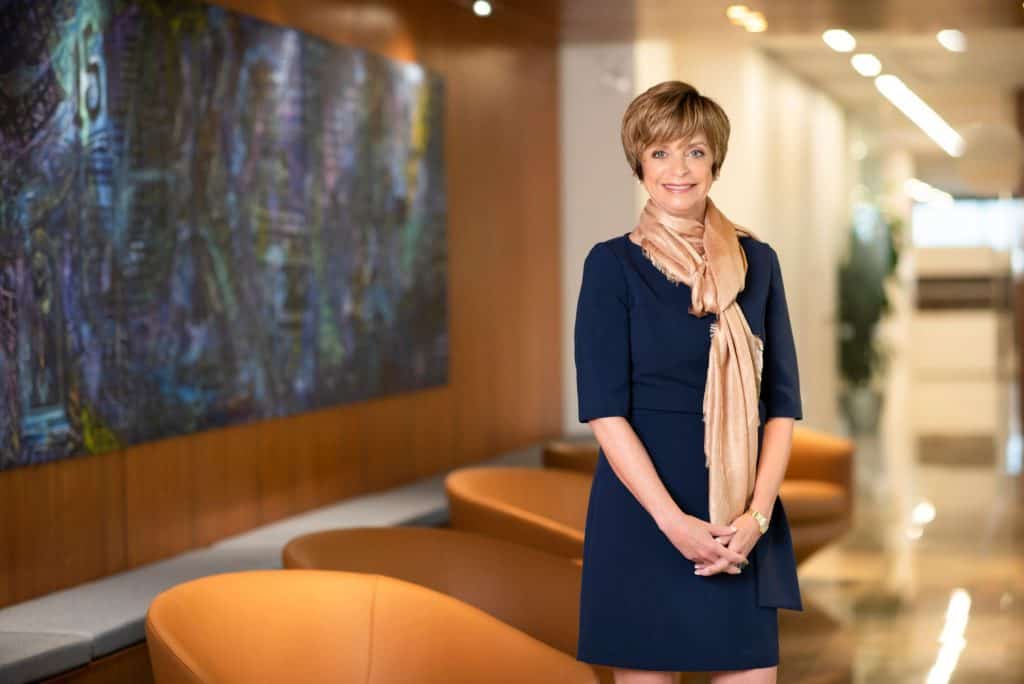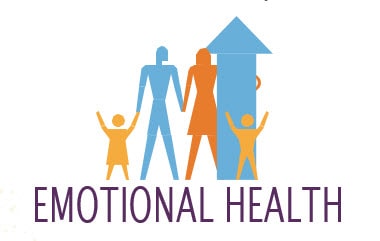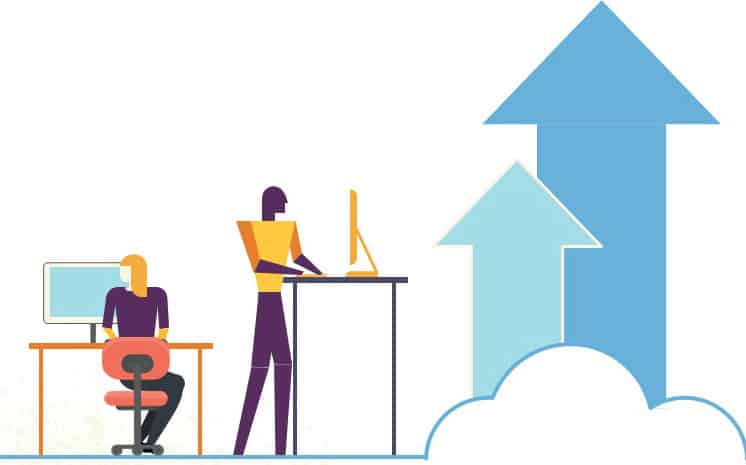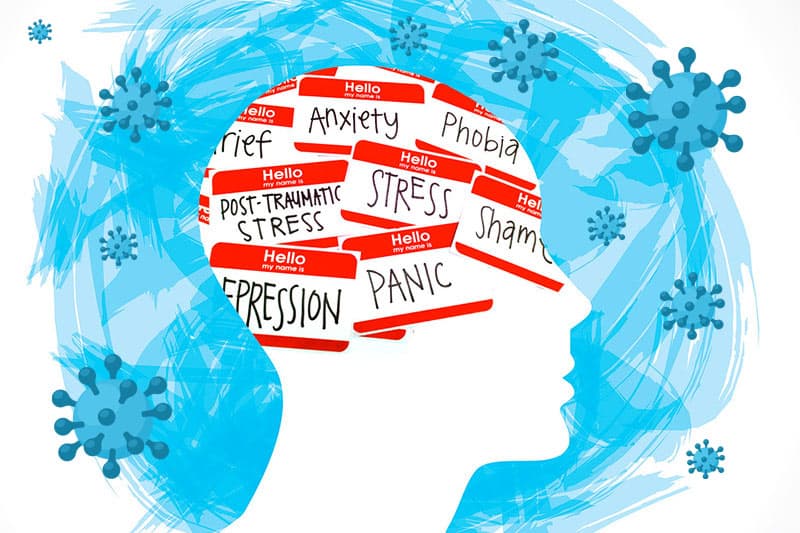Mental Health Needs of Employees During Covid-19
Summary: We discuss the delicate balance HR professionals face when balancing the needs of the company with the needs of its people. How can we protect the company and also be emotionally available for the workers undergoing psychological issues that Covid-19 has brought to the surface? Also, what are common issues employees are likely to experience?
We asked Tammy
“It is now July, 2020. Give us your thoughts how Covid-19 has affected society, employers, and employees throughout the United States.”

Tammy Klein
“Covid-19 surfaced in January, but it really started affecting employers and employees around March when the containment measures to control the spread of the virus started being propagated in the workplace. For example, Disney World shut down March 16th, and large companies soon followed.
It’s been a few months since March, and society hasn’t yet adapted to a “new normal.” It’s hard to say how Covid-19 has affected society because we’re still in the middle of it. The routine and predictability as we know it has been uprooted. Spouses were put out of jobs. Children and teens have had to do their schooling from home, putting additional pressure on caregivers. And family members have had to be especially careful around the elderly.
Many of us have had to isolate and be apart from one another. There was a book by John Donne called “No Man is an Island.” In it he tells how difficult it is for man to endure his condition without connection, friends, and gatherings. That image is especially poignant here as many of us have had to sacrifice community for the sake of survival.
Many health experts foretell of a mental health hurdle in the years ahead. In organizations and teams, the emotional toll has affected people differently. After speaking with colleagues in the Human Resource profession I can say that they’ve had to adapt as well. With the home domain intersecting more than ever with the work domain, HR managers are handling more complex and more intimate issues that hit closer to home. The thorny issue facing HR managers, directors, and consultants is to draw a fine line between what is in their jurisdiction of control and not. Obviously, there is no one size fits all answer, and depends on the individuals involved. I have seen more HR professionals step up however, either by assisting employees with government programs, or pointing them to resources like mental health counselors.
As for my mood, I’d have to say I’m cautiously optimistic.”
The Stress Response
Down with predictability, up with anxiety.
“Our minds rely on certainty and predictability of future events to be able to plan how to spend one’s time, and clearly this is exactly what has been turned upside down.” – Vikram Patel, MBBS, PhD
What are the effects of prolonged stress on the individual?
The “Father of Stress” Hans Selye was a researcher that studied the stress response in rats, and generalized his findings to humans. He injected hormones in rats, disrupting their routine & homeostasis and observerving how the rats passed through three stages,
1) alarm reaction
2) stage of resistance
3) stage of exhaustion

At the Exhaustion stage the rat would either summon the resources to return to homeostasis, or descend into illness and death. In the latter cases, the fear and anxiety morphed into a learned helplessness, and the rat experienced ulcers, and various health maladies.
Quite morbidly, Selye said: “The absence of stress is death.” Now, in mid-year 2020, I think many of us under Covid-19 can confidently say that “We’ve had enough stress.”
But will we return to homeostasis or descend into sickness?
“I have been struck by how unique in some ways this particular crisis is, from many of the disasters we are used to managing – the fact that everyone is affected, there is no safe place anywhere in the world, means there is no one with extra bandwidth that can be called upon to provide reserve capacity for empathy and assistance in ways large and small; and also there is no safety net.” -Dr. Laura Kubzansky, Professor of Social and Behavioral Sciences, Harvard T.H. Chan School of Public Health
The scientific literature has shown that stress taxes the individual. -> It can even burn them out. Read more about burnout on our blog.
Fear & Anxiety
Events have been cancelled, schools have been closed, and business have shut their doors. Individuals, companies, and cities are being asked to make life-altering changes to everyday activities, often with little notice and little time for preparation. At this point, we don’t have a clear idea of how long this new rhythm of life will last.
Anxiety is being felt by all to some degree – regardless of whether you would personally identify as having a history of mental illness or not. In the haze, fear abounds. Fear is biologically adaptive. In response to threat, fear increases alertness and arousal needed to ensure survival. But when that prevailing fear and anxiety does not go away, can the human being overcome exhaustion, and move into a state of homeostasis?

The Power of Vulnerability
Vulnerability researcher Brene Brown reports that perfectionism strongly correlated to increases in anxiety, depression, and substance abuse.
“Perfectionism is a twenty-ton shield that we lug around thinking it will protect us, when in fact it’s the thing that’s really preventing us from being seen… Perfectionism is, at its core, about trying to earn approval. Perfectionism is other focused: What will they think?”

Supporting the Individual
Does your organization have an open door policy? One of the most common complaints of employees is not feeling heard by their boss, or not feeling like they can afford themselves the vulnerability to talk about a sensitive subject. To echo Brene Brown’s sentiments, perfectionism (and holding ourselves to a model that used to work in the past but that doesn’t work now) can be the death-nail of progress.
“Working in a male dominated industry (construction), I see the need for protection. But oftentimes it just takes one person’s sharing to shift the mood and change the conversation, just like it takes one person to speak up and prevent violence or bullying. One person stands up, and then others follow. I believe vulnerability = authenticity. Vulnerability implies that something will be lost if one opens up. Authenticity implies that one is able to connect to a truth one is experiencing, and to take it a step further, if one person is feeling a certain way [i.e. an unfair work policy, an unreasonable request] that others in the organization are also feeling that same way. ” Adam D. Pacitti CEO – Eagle Eye Development Corp, Founder – Conscious Eagle Collective, Guide – Purple Eagle Tribe
Supporting the Organization
We can say that vulnerability supports the needs of the employee.
At the same time, seasoned HR consultants understand the need to protect the organization. We want to give individuals the safe space to share. We want to give employees the open door policy to speak about unfair issues in the workplace. But we don’t want to create the type of environment where rumors fly.
“HR and the senior staff need to be as transparent as they can be [while following privacy rules]. Animosity will be created based on whose work situation has changed and why. Others will fill the void with negativity because that’s the world we live in. However, once employees learn and understand some of the personal side of their co-workers’ situations, they will understand. But if they aren’t informed, the rumors will start flying. especially in circumstances such as the current coronavirus crisis, the rumor mill could rev up to full speed unless companies and supervisors are transparent about decisions made and the decision-making process. Not doing this will only turn up the volume. And if you hear [rumors and speculation], you have to step in and say, ‘Stop.'” Maria Clyde, SHRM-SCP
HR Professionals Can…
- Promote meditation, personality tests, and mindfulness to working adults through employee bulletin boards and monthly memos.
- Consult their company’s (EAP) Employee Assistance Program. EAPs have been shown to reduce absenteeism, reduce accidents, and reduce medical costs arising from early identification and treatment of mental health and substance abuse issues.
- Share personal experiences with others to help reduce stigma, when appropriate.
Final Thoughts: A Human Resource Advisor Should Balance needs of employees with needs of business
A good HR professional understands what it takes to defend the organization from undue stressors, illegal activity, and financial strain. While at the same time they act with care, compassion, foresight, kindness, and empathy for employees who are undergoing their own issues. The key is striking the right balance.
In this article we learned about the heightened stress response U.S. adults are feeling in their work domain. We offered solutions for independent human resources consultants on how they can walk the fine line between making employees feel heard, and also supporting the organization.
References
https://globalhealth.harvard.edu/mental-health-in-the-covid-19-response/

